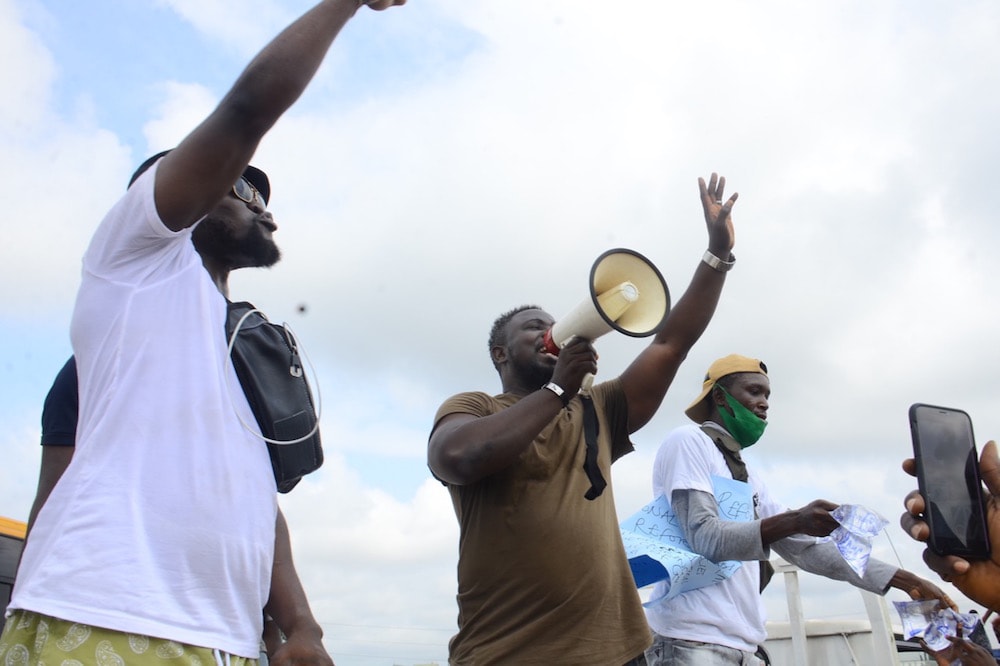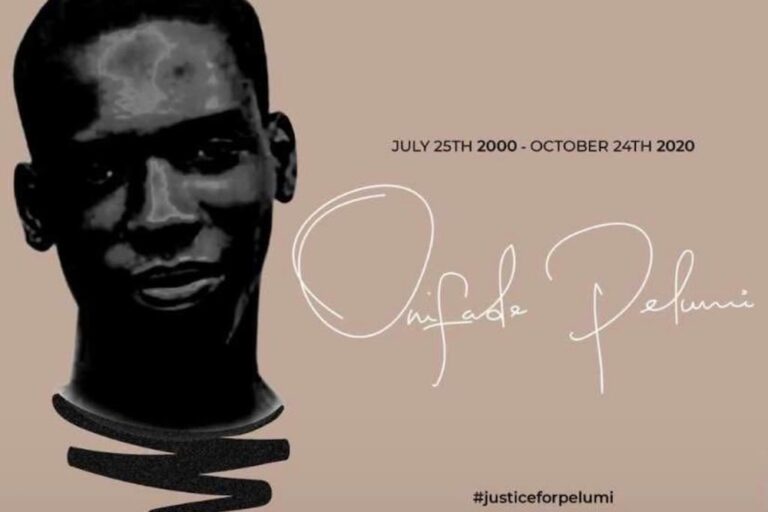Media Rights Agenda condemns the covert blocking of 3 websites associated with Nigeria's #EndSARS protests on the basis that it restricts citizens' rights to freedom of expression and access to information.
This statement was originally published on africafex.org on 1 December 2020.
Media Rights Agenda (MRA) today condemned the apparent surreptitious blocking of three websites associated with the #EndSARS protests in Nigeria, describing the action as a brazen and unjustifiable violation of the right to freedom of expression of the operators of the websites and other Nigerians who get information from the platforms.
The websites, www.feministcoalition2020.com, www.endsars.com, and www.radioisiaq.com, became inaccessible from Nigeria over the past few days but have remained accessible from other countries, a clear indication that they are being blocked only in Nigeri
In a statement in Lagos, MRA contended that the blocking of the websites was illegal and a clear violation of the norms and standards established under international human rights law for the application of any limitation on the right to freedom of expression, particularly as the blocking of websites is not authorized by any law in Nigeria; no legitimate basis for such blocking has been established while the wholesale blocking of the websites cannot be a proportionate response to any offensive content that any of them may have published.
Ms Chioma Nwaodike, Head of MRA’s Legal Department, noted in the statement that as a State Party to the International Covenant on Civil and Political Rights (ICCPR), Nigeria is bound by Article 19 of the instrument which requires that any restriction on the right to freedom of expression must be prescribed by law, pursue a legitimate aim, as well as be necessary and proportional.
She accused the Nigerian Government of going down a frightening path by adopting such a highhanded measure of maintaining an information blackout in a supposedly democratic country in an effort to prevent citizens and other members of the public from receiving or having access to information that is critical of the government or that portrays the government in negative light, saying that is a usual feature of governments that are leaning towards extreme dictatorship.
Ms Nwaodike argued that even if the operators of the websites have committed any offence, by blocking the websites without reference to the courts or the due process of law, the Nigerian government has constituted itself into an accuser, judge and executioner in violation of the rights to freedom of expression and fair hearing, guaranteed by the Nigerian Constitution as well as regional and international human rights instruments to which Nigeria is a party.
She said if the Government believes that any person or organization has committed an offense under any law in Nigeria, the proper thing for it to do is to bring the person or organization before a court of competent jurisdiction and not to resort to taking the laws into its own hands in total disregard for the constitutional rights of its citizens and the rule of law.
Ms Nwaodike called on the Nigerian Government to uphold its international commitments as a State Party to the Universal Declaration of Human Rights (UDHR) and the ICCPR, and urged it to commit itself to following due process of the law.
Members of AFEX:
ADISI-Cameroon
Africa Freedom of Information Centre
Association for Media Development in South Sudan
Center for Media Studies and Peace Building
Collaboration on International ICT Policy in Eastern and Southern Africa (CIPESA)
Freedom of Expression Institute
Gambia Press Union (GPU)
Human Rights Network for Journalists – Uganda
Institute for Media and Society
International Press Centre
Journaliste en danger
Media Foundation for West Africa
Media Institute of Southern Africa
Media Rights Agenda
West African Journalists Association



